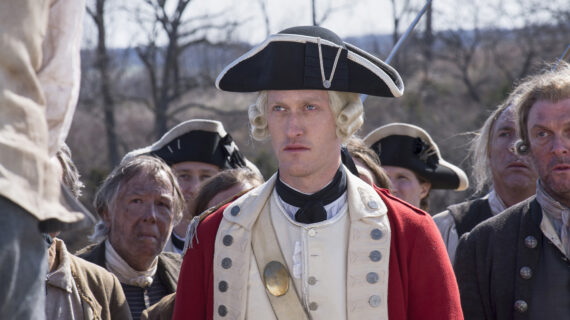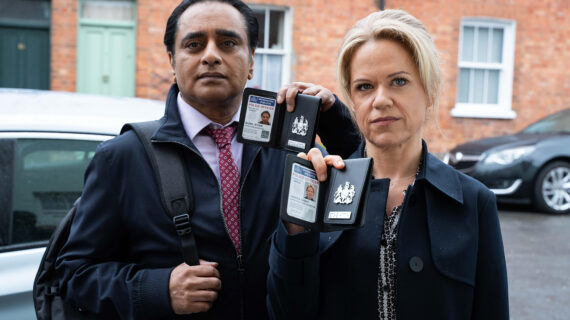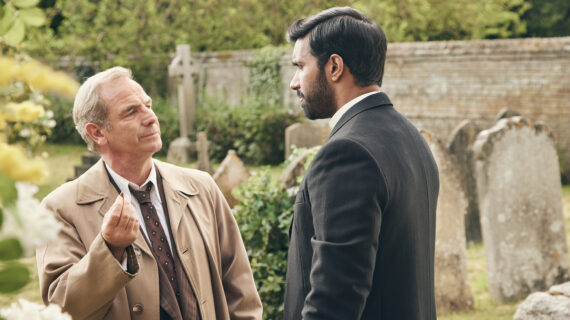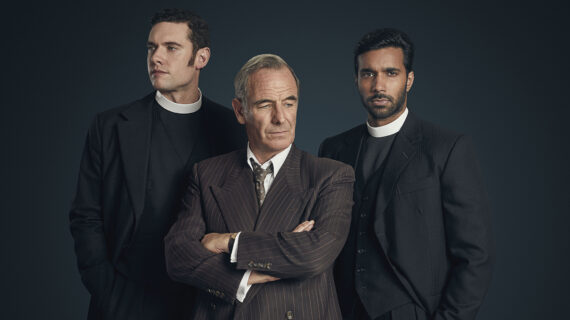Frederica Freyberg:
This week’s pivotal matchup between Kamala Harris and Donald Trump had voters tuning in to the ABC News presidential debate in their living rooms and at watch parties across the state, including in Green Bay, where big screen allowed Democrats to follow every word and where across town, Republicans took in the debate that saw Harris parry successfully with her challenger. Here’s a clip with the candidates responding to the issue of abortion.
Donald Trump:
Her vice-presidential pick says abortion in the ninth month is absolutely fine. He also says execution after birth, it’s execution, no longer abortion because the baby is born, is okay, and that’s not okay with me. Hence, the vote.
Linsey Davis:
There is no state in this country where it is legal to kill a baby after it’s born. Madam Vice President, I want to get your response to President Trump.
Kamala Harris:
Well, as I said, you’re going to hear a bunch of lies. And that’s not actually a surprising fact. Let’s understand how we got here. Donald Trump hand-selected three members of the United States Supreme Court with the intention that they would undo the protections of Roe v Wade. And they did exactly as he intended.
Frederica Freyberg:
How might the debate performances of the candidates move the needle in the 53-day sprint to Election Day? We asked Marquette University Law School poll director Charles Franklin out this week with his latest survey. And hi, Charles.
Charles Franklin:
Good to be here.
Frederica Freyberg:
So your latest survey was in the field before the debate. But does a successful performance move the needle for a candidate?
Charles Franklin:
I think historically, less and less recently than it did in the past. I think good perspective is Joe Biden had an absolutely terrible debate, and he only lost about four percentage points in the polls before he dropped out. So I think expecting a debate bump of any kind, 3, 4 or 5 points would be wildly out of line with what the last debate did. A point or two, maybe, but it may also help bring people home to their parties, more solidify the votes for both sides.
Frederica Freyberg:
So your poll was in the field immediately following the Democratic Convention and we did see some movement for Kamala Harris with 52% to 48% for Harris over Donald Trump. How does that compare to your polling last month?
Charles Franklin:
Yeah, that was a couple of points up for Harris and a point down for Trump, so not much movement. Remember the margin of error is 4.6, so each of those moves is modest compared to the margin of error. But it does reinforce the idea that Harris had a pretty good convention and that that showed up in this poll.
Frederica Freyberg:
It’s also your first poll with VP candidate Tim Walz on the ticket. What kind of favorability does he have, and does he factor into this?
Charles Franklin:
Of the four presidential and vice presidential, Walz is the only one with a net positive favorability, plus six more favorable than unfavorable. But he also has the largest don’t know at 19%, that don’t know enough about him yet. And so initially, the reaction is strong. We asked the same question of Walz that we asked about JD Vance. Do you think he’s an excellent, good, fair or poor choice? Among Democrats, 90% think Walz is an excellent or good choice. Among Republicans, it was 75% that said the same thing about JD Vance the week after that convention. So both parties are quite satisfied with their VP nominees. Democrats are a little bit more.
Frederica Freyberg:
Let’s take a look at the Wisconsin U.S. Senate race. Among registered voters, it’s 52% for Tammy Baldwin to 48% for Eric Hovde. Now, this has tightened a little.
Charles Franklin:
It has tightened a little. The range over recent polls has been between about a four point Baldwin lead and about a seven point lead. It was closer to five last time, so just a smidgen closer. One thing that’s happened is Hovde has been getting better and better known. Only 22% still say they haven’t heard enough about him now. That was 80% in January and this time he made a little bit of progress on the favorable-unfavorable dimension. He’s still net negative, but he’s a little better than he was last month.
Frederica Freyberg:
One thing that stood out to me in your polling on this particular race was that independents favor Baldwin by 65% to Hovde 33%.
Charles Franklin:
The caution here is independents are a fairly small sample. They’re only about 6% or 8% of the public. So there’s a lot of margin of error there. But what we have seen consistently is independents were favoring Trump, while Biden was still in. They came to about evenly divided last month. This month, they’re pretty strongly favoring both sets of Democrats: Harris and Baldwin. I would be very cautious about thinking this is a permanent position because of the sample size and because independents are independents. They do change their minds and they can be so critical in the last week or two of the campaign making up their minds late.
Frederica Freyberg:
Let’s talk about enthusiasm to vote in your poll. This also stood out. 72% of Democrats say they are very enthusiastic to vote, compared to 63% of Republicans. Now, how have these numbers shifted?
Charles Franklin:
They’ve changed tremendously. Back in the spring and through the point where Biden dropped out, Republicans were 10 to 15 points or even 20 points at one stage ahead of Democrats in enthusiasm. In July, when Biden dropped out and Harris had just gotten in the race, we saw Democrats close the gap and almost catch up to Republicans. This month, Democrats have pulled clearly ahead. I should add, Republicans got more enthusiastic after their convention too. So it’s not like they were lacking enthusiasm. They gained as well. But they’ve held steady this month while Democrats continued to rise.
Frederica Freyberg:
What are the kinds of events that factor in particularly to enthusiasm?
Charles Franklin:
Well, I think the biggest thing is simply the change of candidates. That Joe Biden is still quite unpopular in the state, only 41% approve of the job he was doing, and that was a tremendous drag on Democrats and boost to Republicans. With him out and Harris having had a good stretch, news-wise and presentation-wise, I think that is a big part of this shift.
Frederica Freyberg:
Talking about issues, the top three for Wisconsin respondents were the economy, abortion and immigration, with of course, the economy kind of way outside. But there’s a sharp partisan split in who cares about what issues.
Charles Franklin:
It’s gigantic. Now all three partisan groups Republicans, independents and Democrats put the economy either first or second. So that’s very high for everybody. Democrats put abortion as their top issue, but independents put it way down as an important issue. And for Republicans, they put immigration as the second highest issue. But independents put that quite a ways down. So if you think about trying to appeal to those undecided or independent voters, the economy is the place where everybody cares. And then you’ve got two issues that really appeal to the bases of each party, but don’t seem to appeal that much to independents.
Frederica Freyberg:
All right. Charles Franklin, thank you very much for your work.
Charles Franklin:
Thank you.
Search Episodes
Related Stories from PBS Wisconsin's Blog

Donate to sign up. Activate and sign in to Passport. It's that easy to help PBS Wisconsin serve your community through media that educates, inspires, and entertains.
Make your membership gift today
Only for new users: Activate Passport using your code or email address
Already a member?
Look up my account
Need some help? Go to FAQ or visit PBS Passport Help
Need help accessing PBS Wisconsin anywhere?

Online Access | Platform & Device Access | Cable or Satellite Access | Over-The-Air Access
Visit Access Guide
Need help accessing PBS Wisconsin anywhere?

Visit Our
Live TV Access Guide
Online AccessPlatform & Device Access
Cable or Satellite Access
Over-The-Air Access
Visit Access Guide
 Passport
Passport

















Follow Us